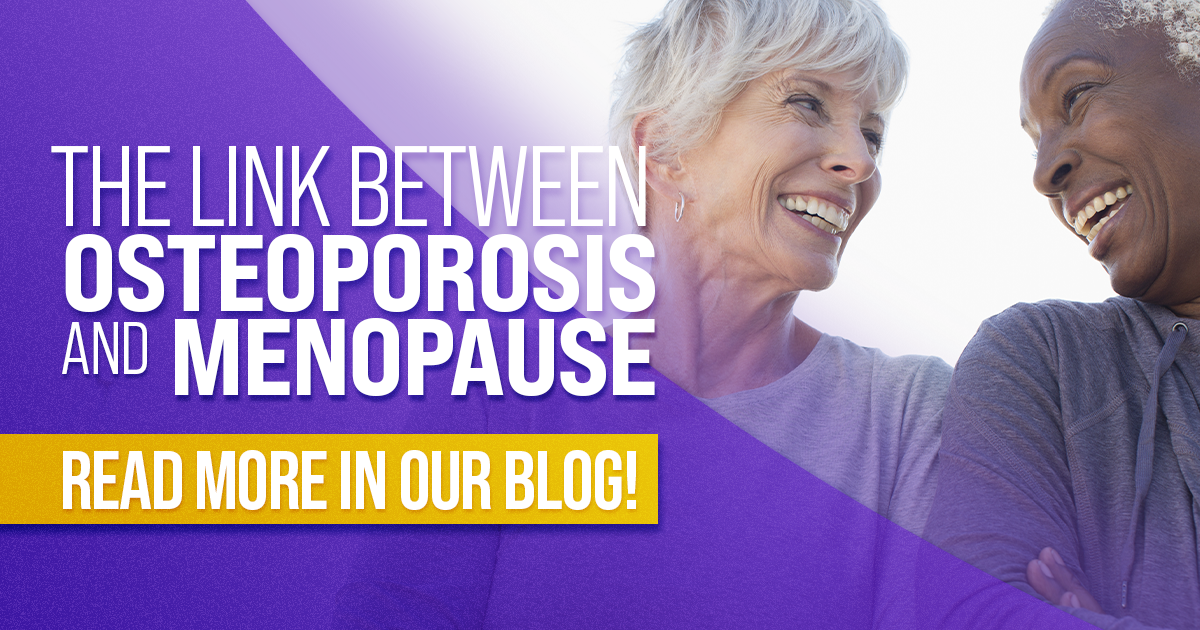Osteoporosis is a disease that weakens the bones, increasing the risk of unexpected breaks and fractures. It is often referred to as a silent disease because there are typically no symptoms until a minor injury causes a fracture and reveals how weak the bones are. For women, the stakes are even higher due to the direct link between osteoporosis and menopause that can speed up bone loss.
Osteoporosis
Osteoporosis is a disease that affects the bones and primarily occurs in people as they age. Bones are delicate structures that have small spaces inside (think honeycomb). Osteoporotic bones have lost density or mass and contain abnormal tissue structures. As bones become less dense, they weaken and are more likely to break.
Without proper treatment, osteoporosis continues to progress. There are several risk factors for osteoporosis, including menopause.
Menopause
Menopause is when women stop ovulating, their cycle ceases, and estrogen levels decrease dramatically. The hormone changes that come with menopause cause women to lose bone mass even faster. Doctors say that menopause contributes significantly to osteoporosis in women, which explains why men are at less risk for the disease.

Prevention
Osteoporosis can begin as minor bone loss, a condition known as osteopenia. Osteopenia is when your bone density levels are lower than the healthy level but not yet at the level of osteoporosis. Osteopenia is a warning sign for you to prevent further bone loss.
You can fight off bone loss by:
- Weight-bearing, bone-strengthening exercises
- Aerobics, jogging, and yoga
- Getting enough calcium and vitamin D in your diet
- Food is the best source of calcium. Dairy products are high in calcium. Certain green vegetables and other foods contain calcium in smaller amounts. Some juices, breakfast foods, soymilk, cereals, snacks, breads and bottled water have added calcium.
- Hormone replacement therapy (HRT)
- Knowing the high-risk medications
- Steroids, some cancer treatments, drugs used to treat seizures (anticonvulsants), blood thinners can increase the rate of bone loss.
Breaking the Link

You can find out whether you have osteoporosis or if you should be concerned about your bones by getting a bone density test.
While current treatments are effective and lower the risk of further harm, clinical research is essential to understanding the diseases and exploring new treatment options. Seattle Clinical Research Center is currently looking for participants to join research studies looking into new options for post-menopausal osteoporosis. To learn more, call (206) 522-3330 or visit our website.
References:
https://www.everydayhealth.com/menopause/osteoporosis-and-menopause.aspx
https://www.webmd.com/menopause/guide/osteoporosis-menopause
https://www.hormone.org/diseases-and-conditions/menopause/post-menopause-and-osteoporosis



